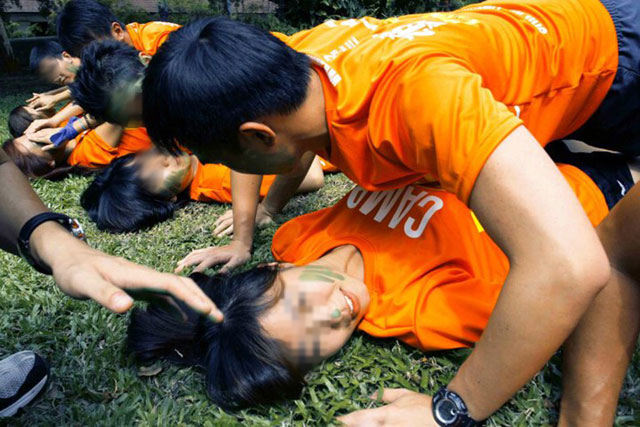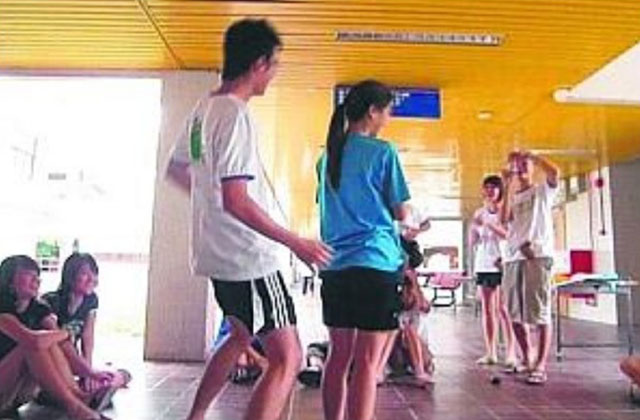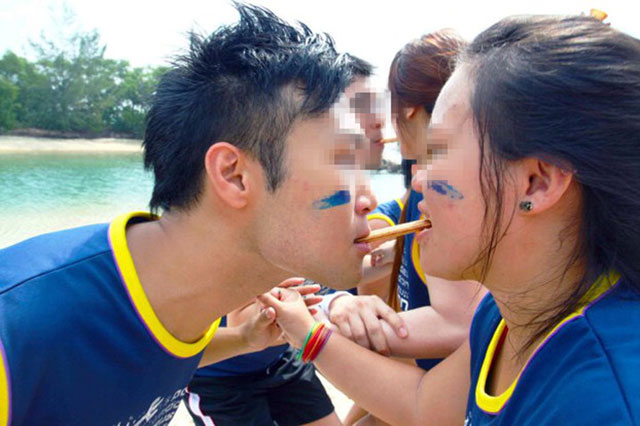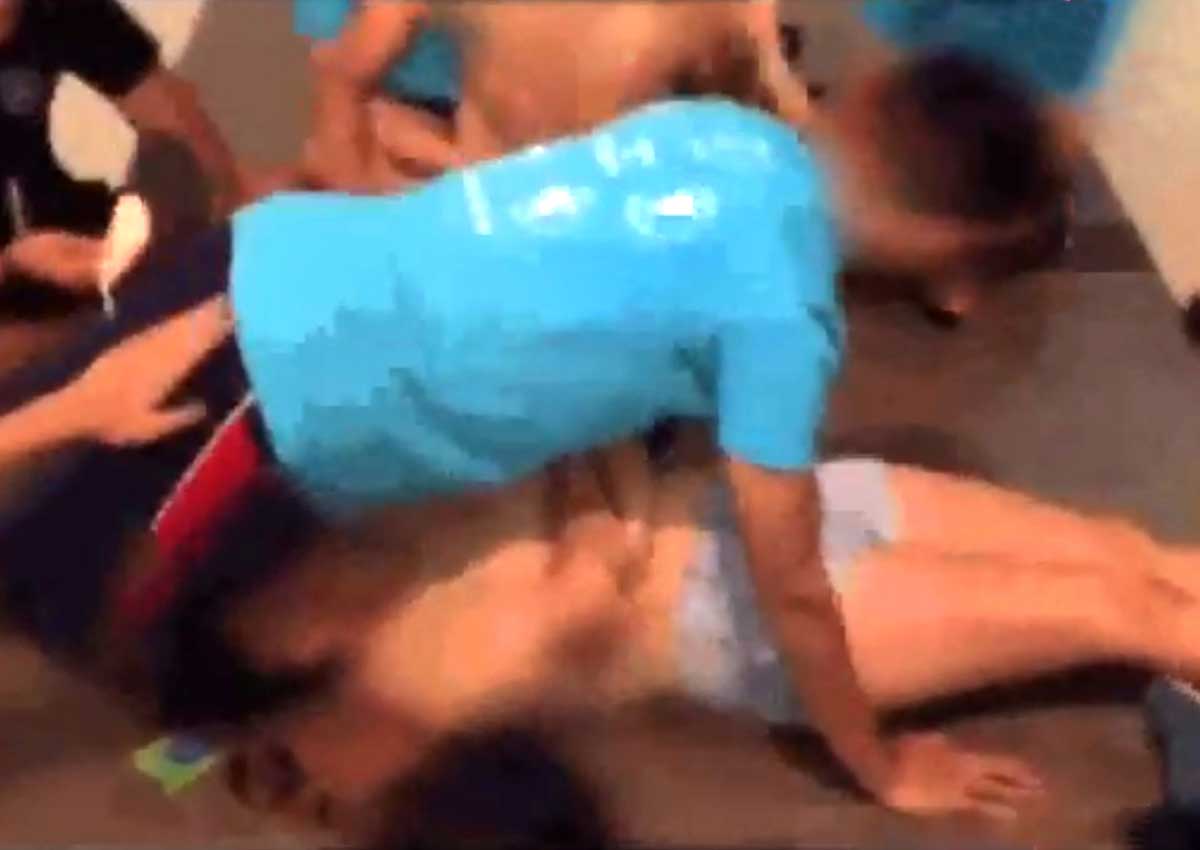As the National University of Singapore (NUS) began its crackdown on sexualised activities during orientation games yesterday, Members of Parliament (MPs) expressed surprise and concern that such activities are still happening.
Several orientation camp organisers in NUS were called up for questioning by the school administration, following The New Paper’s report on sexualised games at some of the camps.
Some female participants said they were pressured into taking part in these games despite their discomfort. The games included a simulated rape between siblings, embarrassing questions about sluttiness and bodily fluids, and inappropriate body contact.
TNP understands that the NUS Students’ Union, in particular, is under intense scrutiny, but has so far denied allegations of indecency.
Many people were outraged by the report and MPs called on the school to take a closer look at such activities.
In a statement yesterday, an NUS spokesman said that inappropriate activities and behaviours are not condoned by the school and “strong disciplinary action” will be taken.
“NUS takes an extremely serious view of the recent media report and feedback on instances of offensive and completely inappropriate orientation activities,” she said.
“We are very disappointed that… instances of offensive and completely inappropriate orientation activities that were not submitted nor endorsed have surfaced.”
About 40 orientation camps were organised by the different faculties, halls, student union, and school societies in NUS this year.
The spokesman said that all students involved in organising and leading the camps were briefed by the Office of Student Affairs (OSA) before the activities were carried out.
They were also given a list of dos and don’ts.
She said: “Students were also made aware that strong disciplinary actions will be taken against offenders.
“In addition, all proposed orientation programmes and activities had to be endorsed and cleared by the relevant supervisors, such as hall masters and vice-deans, as well as OSA, before they could proceed. Students were asked to remove inappropriate activities.”
An e-mail was sent to all NUS students yesterday to assure them that the school is “committed to providing students with a safe and secure environment”.
Mr Seah Kian Peng, who is on the Government Parliamentary Committee (GPC) for Education, was surprised that sexually suggestive activities were still going on despite complaints over the past decade.
After finding out details of some of the activities, he described them as “unnecessary and humiliating”.
He urged the universities to take a hard look at these activities and examine the purpose of such camps.
“If the purpose of an orientation camp is team bonding or a rite of passage, such behaviour cannot be justified in any way. They have definitely crossed the line,” he said.
“During the planning process, the leaders should just ask themselves: Is this something they would want their younger siblings to go through?
“If they had a daughter, would they want her to experience this?”
Ms Denise Phua, GPC chairman for education, urged the organisers to reflect on the purpose of orientation camps. She said: “They should consider other activities that are less controversial and still fun and memorable.”

Photo taken at Singapore Institute of Management-University of London’s (SIM-UOL) orientation games in 2011. PHOTO: Wanbao reader.
PARENTS REACT
Many parents were shocked to read about the sexualised activities at NUS and some went on TNP’s Facebook page to register their disapproval.
Netizen Yoshimura Isaac wrote: “Frankly, if my daughter goes for such a orientation, then I will make sure I change her to another school. It’s supposed to be teaching things that are useful to their future, not teaching them to do or act (in) such a manner.”
Another netizen, Alvin Teow, wrote: “If NUS doesn’t deal with this in the right way, then all parents should think thrice about letting their daughters enrol in NUS.”
TNP reader Josephine Ng, 46, a housewife, called the activities ridiculous and embarrassing.
“When I read the article, I could not believe it. I’ve read past reports and this is not excusable,” said the mother of two girls aged 12 and 14.
“If the school cannot handle it, then I think it’s time the Government steps in,” she said.
“Such activities have a long-term impact, not just on the students but on Singapore’s image as well.”
Ms Phua said that parents are understandably concerned.
“But their children are no longer kids, and they must let them decide if they wish to take part in such activities,” she said.
In previous years, it was reported that the Social Development Unit (SDU), which was formed in 1984 to promote marriages among graduate singles, had sponsored many of the orientation camps in universities.
In 2008, a letter to The Straits Times forum page complained about risque activities at orientation camps and called for SDU and the universities to monitor the activities.
An SDU spokesman said at the time that it had informed students who sought its support to keep physical contact to a minimum.
The unit was renamed the Social Development Network (SDN) in 2009.
An SDN spokesman told TNP yesterday: “Since January 2016, SDN has ceased its funding for university camps and events.”

A forfeit previously done at camps in NTU and NUS in 2008, where one person pretends to be a pole while the other pole-dances. PHOTO: Stomp.
Clear guidelines for NUS orientation
An NUS spokesman told The New Paper that clear guidelines on dos and don’ts were set for orientation activities.
DOS:
- Risk assessment and management to ensure safety is not compromised
- Protect interests of members of university community
- Uphold image of university
- Seek consent from relevant authorities
- Social propriety (for example, no abusive language)
- Respect dignity of individuals (no ragging)
- Participation should be optional with no coercion
- Responsible use of premises and facilities on campus
- All activities to be conducted between 7am and 11pm to allow sufficient rest for participants
DON’TS:
- Orientation activities must not include intimidation, humiliation or violation of dignity of individuals (for instance, ragging)
- No group regimentation including marching, mass physical exercise and shouting on campus
- No harassment or undesirable behaviour towards any individual
- No individual or group ragging (such as shouting or use of abusive language against freshman)
- No activities that may cause physical harm or emotional distress
- No acts against personal or religious precepts and races
- No activities aimed at testing physical prowess, level of confidence and “fear factor”
- No activities involving use of dangerous and inflammable substances
- “Fright Nights” and its variations are strictly banned
- No activities involving physical intimacy with the opposite sex
- No activities involving raw food/ingredients and condiments
Unfair to generalise: Orientation leader
Sexualised activities are not the norm at NUS orientation camps, an orientation group leader (OGL) said yesterday.
Speaking in his personal capacity, Mr Siew Jowen, 22, told The New Paper: “I felt that it was unfair to the other orientation groups in this camp, and other orientation camps, because such incidents are isolated.”
He said the re-enactment of the incestuous rape scene did not take place in his group. “I did not even know this rape game existed,” he said.
The NUS Students’ Union camp has 20 orientation groups this year, each led by a different OGL. Before and during the games, OGLs will ask the participants if they feel comfortable with the activities, Mr Siew said.
“Anyone is free to pull out. We respect people’s choice and we will not make them feel bad for quitting,” he said.
And some participants did sit out for some of the games. “We tend to see the same few participants sitting out. All the games planned by the camp committee are non-sexualised,” he said.
Asked about how games become sexualised, Mr Liew said: “We are all adults so there might be sexual innuendo that slipped (in). However, none of them is intentional.”

Photo taken at Singapore Institute of Management-University of London’s (SIM-UOL) orientation games in 2011. PHOTO: Wanbao reader.
SMU bans improper themes, NTU stays alert
The Singapore Management University (SMU) has guidelines for its freshmen orientation camp (FOC) activities to ensure that close physical contact between the sexes is kept to a minimum.
Activities with improper themes are prohibited, a SMU spokesman told The New Paper yesterday.
There are other rules to ensure the safety and well-being of camp participants.
For example, rules on separate sleeping arrangements for men and women are strictly enforced and alcohol consumption is prohibited.
The SMU FOC, which is funded by the university, is organised by the SMU Students’ Association and the Office of Student Life.
All student organisers and student facilitators involved in the FOC undergo training via workshops on risk assessment and management, games leadership, facilitation and CPR-AED certification.
Nanyang Technological University (NTU) has similar guidelines for its orientation activities. This year, NTU “redefined” these activities to focus on values including inclusiveness and mutual respect.
NTU Associate Professor Kwok Kian Woon, Associate Provost (student life), said: “… Organisers of orientation activities have been advised not to pair or group participants together based on gender or any other factor.
“Unwanted or unwelcome physical contact and other activities that are not in keeping with the orientation objectives and student code of conduct are strictly prohibited, and the university will not hesitate to take disciplinary action in such cases.”
Associate Prof Kwok said that professors and staff in the schools and halls have also become more involved and proactively supporting the student leaders’ and orientation organisers’ efforts.
He said: “… No student should take advantage of any freshman.
“We are aware of the issues and have been working closely with NTU student leaders to encourage greater safety and responsible behaviour during orientation, dedicating significant university resources to their activities.”

This article was first published on July 27, 2016.
Get The New Paper for more stories.






